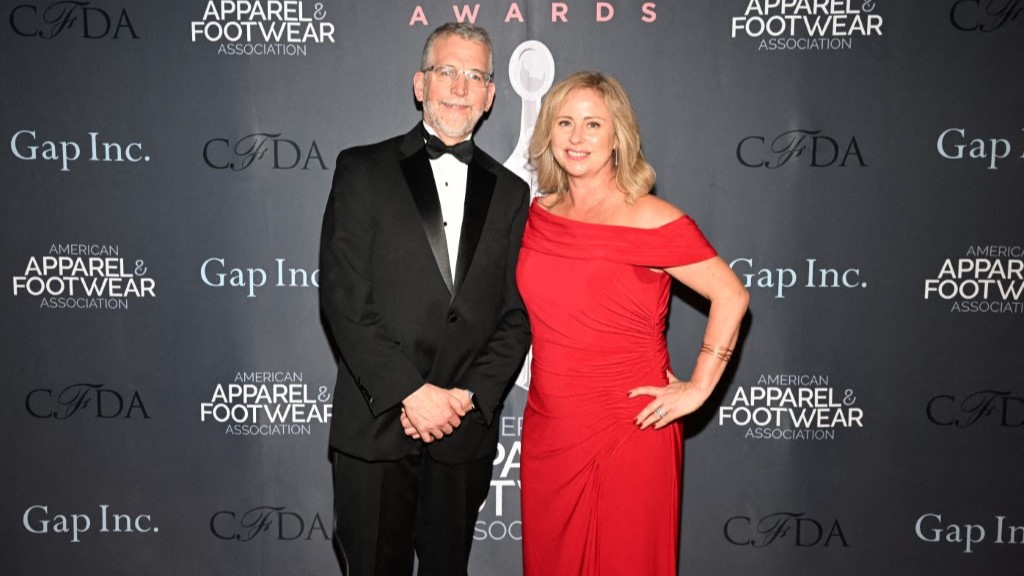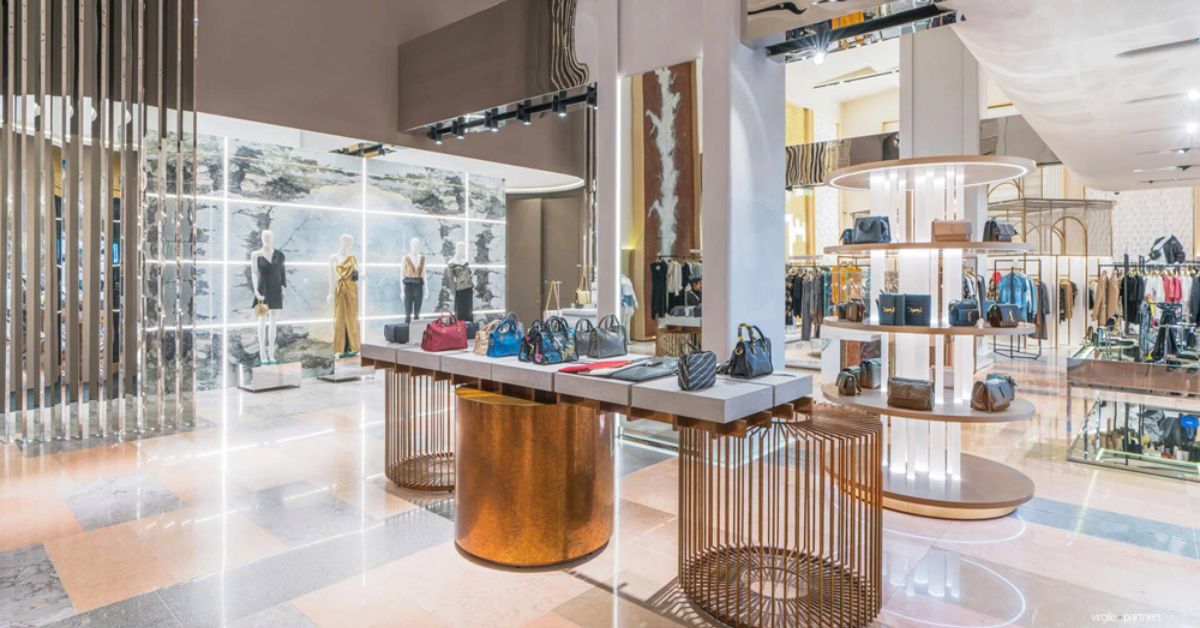BEIRUT — If you once believed that the world of fashion and luxury was disconnected from reality, thinking that major brands remained in a bubble, preserving their idealized vision of the world and selling it at a premium, the events of October 7, 2023, have likely dispelled those notions.
On that day, following an unprecedentedly violent attack by Hamas militants on peaceful kibbutzim and an outdoor celebration, Israel was left reeling. The tragedy resulted in 1,400 deaths, with most victims having been tortured, and over 200 taken hostage. It felt as if the gates of hell had been flung open.
In response, Israeli authorities mobilized one of the world’s most advanced armies in Gaza. Public opinion quickly polarized into pro-Israel and pro-Palestine factions. The discourse became sharply divided. Expressing sympathy for Palestinians was now perceived as being against Israel, and the reverse was equally true.
Social Media Surge: The Role of Instagram and Influencers
Gone are the days when Donald Duffy, a long-time collaborator with Marc Jacobs, explained to me in Beirut why the brand selected Victoria Beckham as its muse. “We’re in an age where women are swamped with responsibilities, both at home and in their careers. Victoria Beckham offers them a fantasy of a world where everything is effortless, where leisure time is dedicated to beauty treatments, travel, and shopping,” he said.
This was back in 2012, and emerging celebrities who resonated with this widespread desire to break free from the mundane were starting to dominate a platform that was both commonplace and groundbreaking. Instagram paved the way for self-branding, and the race to be the “fairest of them all” intensified.
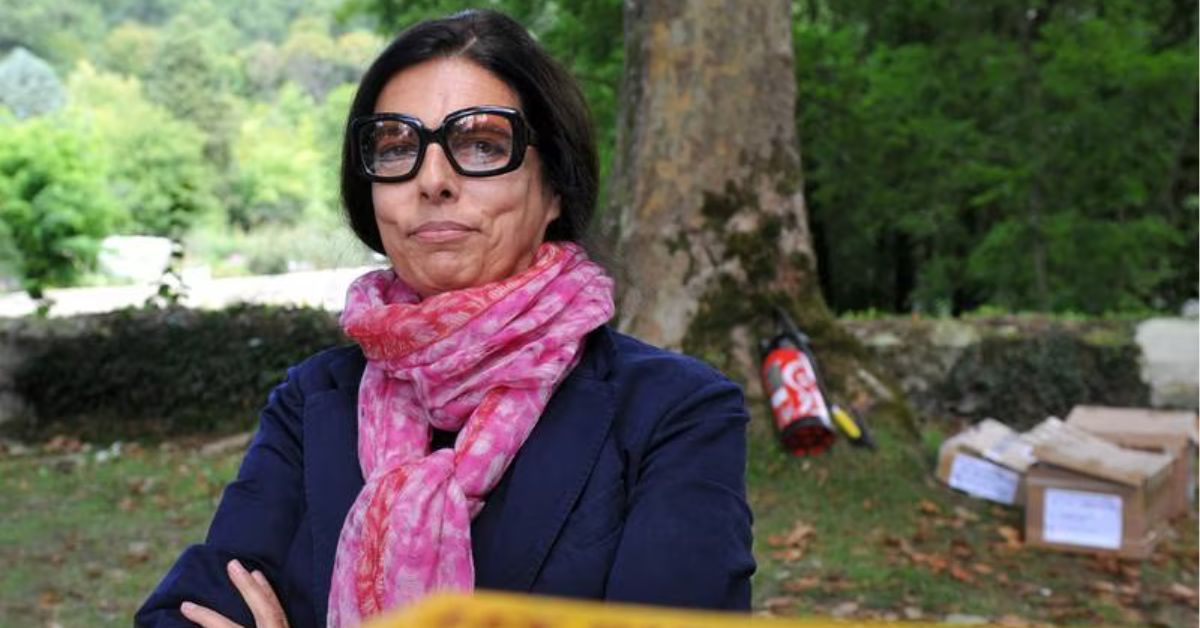
L’Oréal’s Crisis: When Luxury Enters Politics
One of the first significant controversies in the luxury brand world ignited on Twitter. In 2018, L’Oréal, the renowned French cosmetics company, selected model Amena Khan to endorse a new shampoo from their Elsève range. Khan, a British woman of Indian descent who wore a hijab, received immense support from a segment of consumers who felt underrepresented in luxury advertising.
However, tweets from 2014, in which Khan expressed anti-Israel sentiments, resurfaced. Although she had since deleted these tweets, the backlash was swift. Khan apologized and stepped down from the campaign.
This episode highlighted suspicions that many luxury brands, particularly in the cosmetics sector, not only support Israel but might also be subtly bolstering its image.
L’Oréal, a global powerhouse with extensive licenses across cosmetics, fragrances, and fashion, operates some of its research and production facilities in Israel.
The company’s board features Françoise Bettencourt Meyers, the world’s wealthiest woman and heiress to Liliane Bettencourt. She is married to Jean-Pierre Meyers, whose grandparents, including the former rabbi of Neuilly-sur-Seine, Robert Meyers, were sent to Auschwitz. For L’Oréal, any negative association with Israel is a sensitive issue.
Global Enterprises React: US Brands on the Forefront
In the initial phase of the conflict with Hamas, which Israeli Prime Minister Benjamin Netanyahu anticipated would be “long and challenging,” Israel Bonds reported sales exceeding $200 million. The majority of these bonds were purchased by states and local governments, as noted by ejewishphilanthropy.com.
The same source also highlighted a generous $7 million donation from the Blackstone investment firm intended for Israeli humanitarian efforts. In the wake of this, numerous luxury and entertainment corporations announced substantial contributions.
Walt Disney Co.’s Support for Israel
The Walt Disney Co. announced a donation of $2 million towards humanitarian initiatives in Israel. Half of this amount, $1 million, will be allocated to nonprofit organizations focusing on children’s welfare, while the remaining $1 million will benefit Magen David Adom, the Israeli counterpart of the Red Cross. Furthermore, the company has urged its vast workforce of over 200,000 to contribute, vowing to match their donations up to a sum of $25,000.
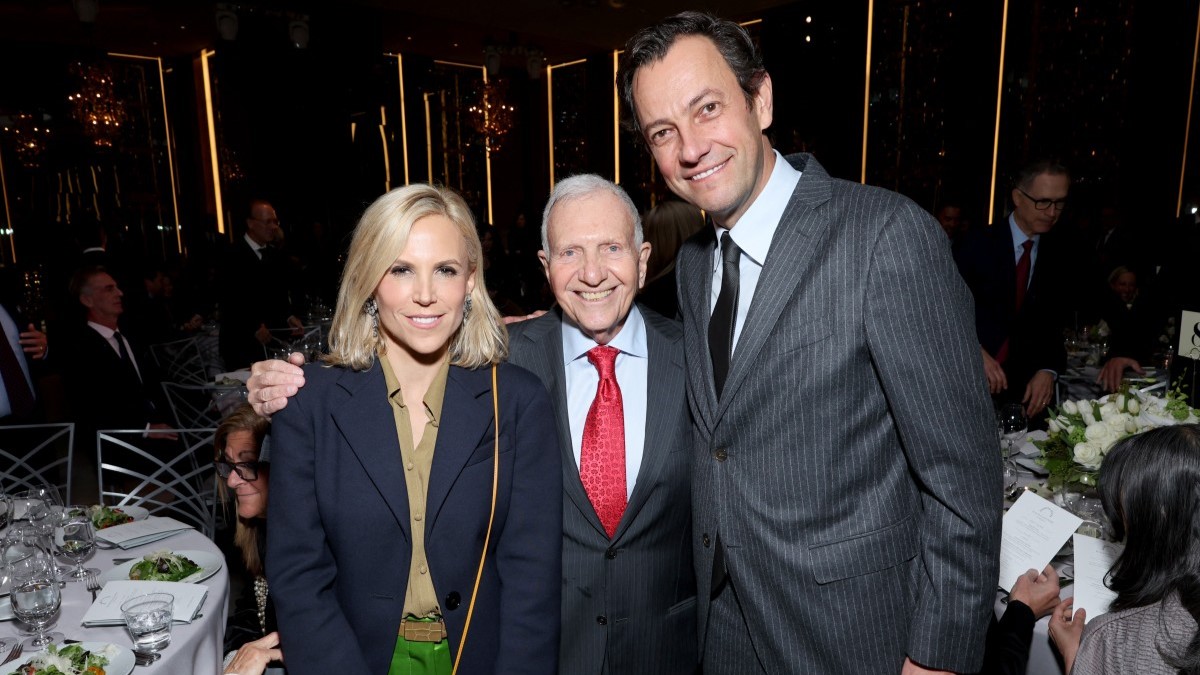
PVH Corp’s Commitment: An American Legacy Supporting Peace
PVH Corp, the American conglomerate behind iconic brands such as Calvin Klein and Tommy Hilfiger, has extended a grant to the International Committee of the Red Cross, Magen David Adom, and the Palestinian Red Crescent, as reported by WWD. In addition to this, PVH has promised to match any donations made by its employees towards relief activities in the affected region.
The company also extended financial aid to its employees and their families who have been impacted by the conflict. The origins of PVH trace back to Jewish immigrants Moses and Endel Phillips, who began by hand-sewing shirts for coal miners in Pottsville, Pennsylvania, in the 1860s. Their collaboration with another immigrant, Prussian John M. Van Heusen, led to the foundation of the company. The “P” in PVH stands as a testament to this legacy.
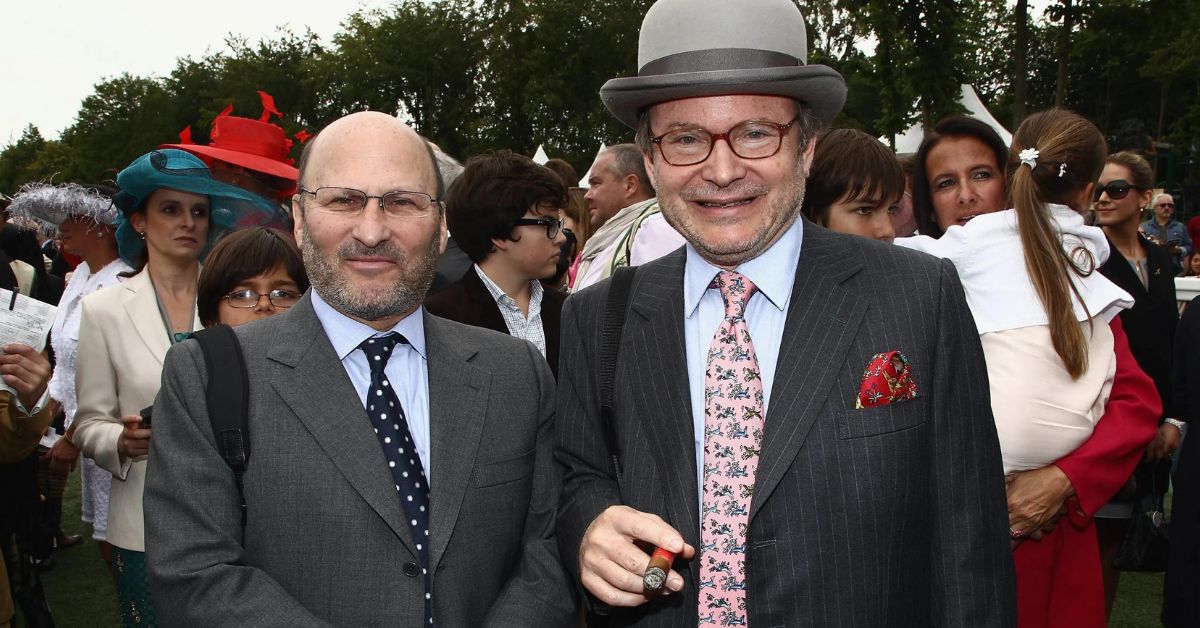
Chanel’s Position: French Elegance Supports Israel
An internal memo from Chanel, which surfaced in the October 27 edition of the American fashion publication Women’s Wear Daily, revealed that the luxury brand’s executives pledged $4 million in support of Israel’s war efforts. This memo’s circulation on TikTok was met with ironic comments, highlighting the pro-Nazi affiliations of the brand’s founder, Coco Chanel.
However, it’s essential to note that the luxury brand, headquartered in the Netherlands, is under the ownership of brothers Alain and Gérard Wertheimer. They are the grandsons of Pierre Wertheimer, who, in collaboration with his brother Paul, acquired Parfums Chanel in 1924.
As 2024 approaches, this family of low-profile Jewish billionaires from Alsace is gearing up to commemorate a century of steering this French luxury powerhouse. Given their lineage and history, it’s understandable that the brand would express solidarity with Israel during such a pivotal period.
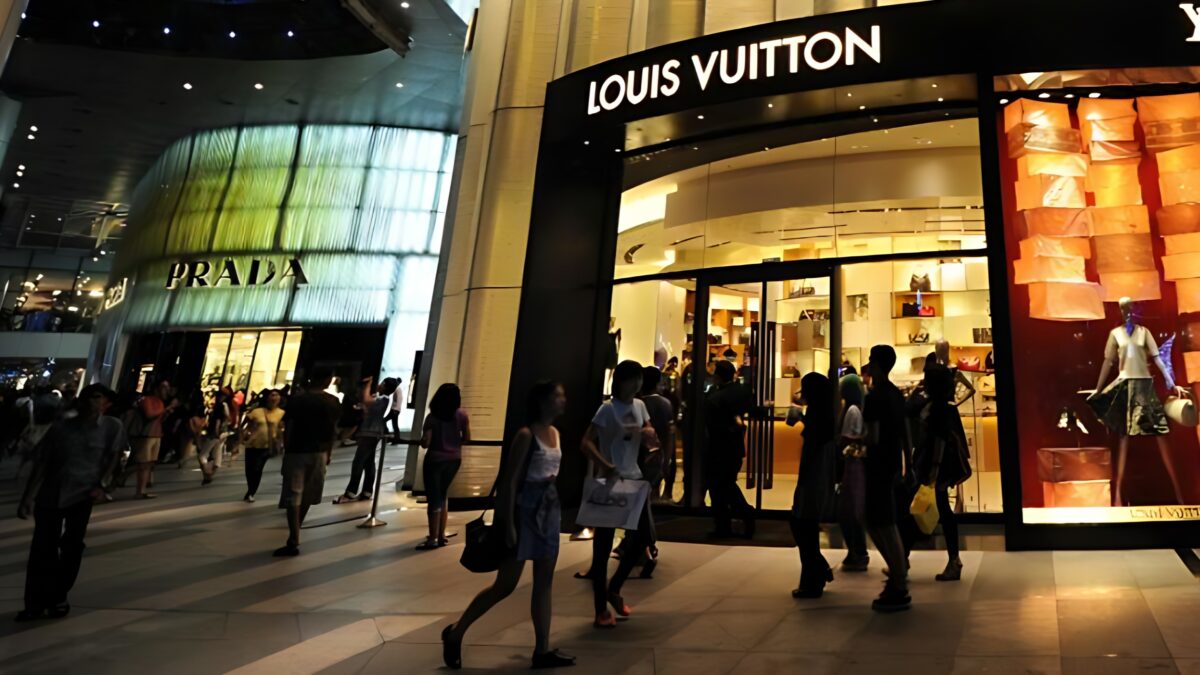
Tory Burch Leads with Compassion
As reported by WWD, Jewish designer Tory Burch, who serves as the company’s executive chairman and chief creative officer, along with brand CEO Pierre-Yves Roussel, have made significant personal donations in the company’s name.
Burch donated $100,000, while Roussel contributed $150,000 to the International Committee of the Red Cross and the Alliance for Peace in the Middle East (ALLMEP), an organization committed to fostering peace and coexistence in the region.
In a joint statement, they announced, “Tory Burch LLC will match any donations its employees make to ALLMEP. We remain hopeful for peace and are dedicated to uplifting our shared humanity.”
American Eagle Outfitters Inc. Stands Firm with Israel
American Eagle Outfitters Inc., a leading provider of jeans and casual wear, has shown unwavering support for Israel. The company’s Chief Marketing Officer, Craig Brommers, showcased this commitment by sharing a photo on his LinkedIn profile.
The image depicted an Israeli flag prominently displayed on the brand’s billboard at their flagship store in Times Square, Manhattan. Brommers succinctly captioned the post, “Our new American Eagle billboard in Times Square.”
A Tightrope Walk
In a situation reminiscent of the Amena Khan controversy with L’Oréal, Samira Nasr, the Lebanese-Trinidadian editor-in-chief of Harper’s Bazaar, expressed her dismay on her personal Instagram account.
Referring to the intensified Israeli blockade on Gaza, she wrote, “Cutting off water and electricity to 2.2 million civilians… This is the most inhumane act I’ve witnessed in my lifetime.”
Her statement ignited a firestorm within the Hearst media group, which owns Harper’s Bazaar. Facing backlash and with her position seemingly at risk, Nasr deleted her original post.
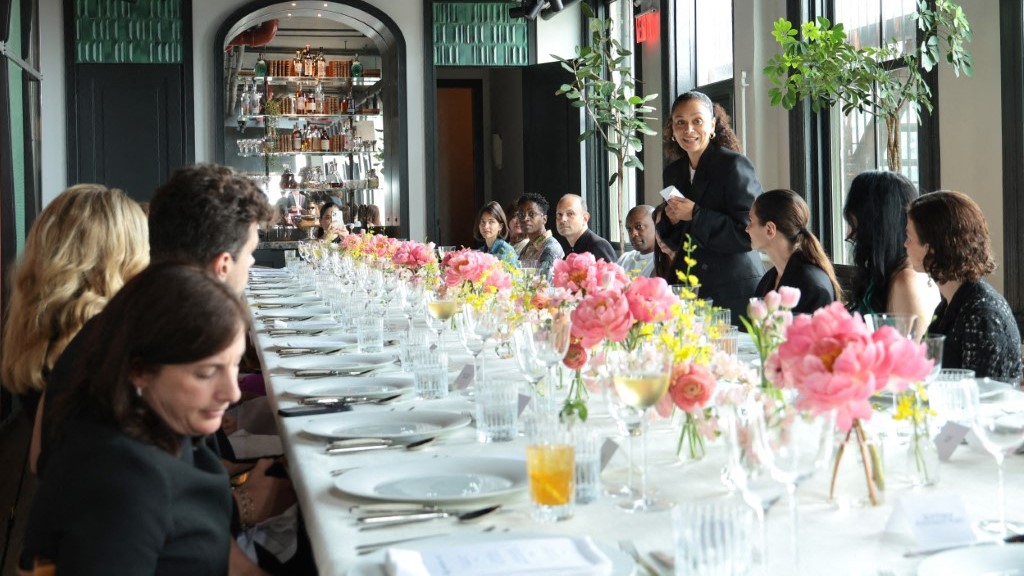
She subsequently issued an apology, stating, “I deeply regret my insensitive and hurtful remarks and wish to apologize to my friends, colleagues, and the entire Jewish community. I harbor no animosity towards any group, and I do not condone the actions of a terrorist organization responsible for the deaths of countless innocent Israeli civilians. Words carry weight, and I was reckless with mine. I sincerely apologize for my thoughtlessness.”
Is the luxury industry’s support for Israel reconcilable with its appeal to the vast Arab market? Undoubtedly, the tightrope walk between compassion, commerce, and diplomacy is more treacherous than ever.
Only those who can strike a delicate balance—keeping a measured distance from a conflict with potential global repercussions and showing unbiased empathy for all affected civilians, irrespective of their origins—emerge unblemished.
